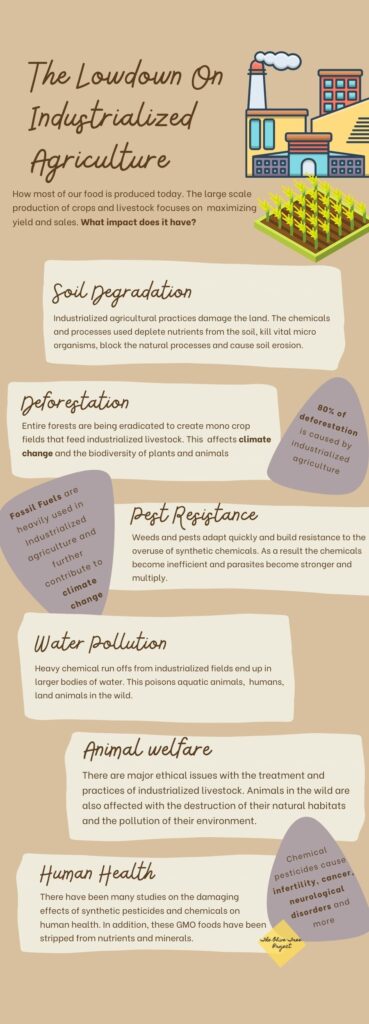Industrialized agriculture seeks to maximize the land to generate the highest possible profit and to feed as many people as possible. Those in favor of this type of farming claim that this is the most viable and profitable way to feed an ever growing society. Methods, such as high irrigation, planting high yield species and the spraying of chemical pesticides are used to ensure a high quantity outcome.
History of Industrialized Agriculture
The rise of industrialized agriculture came after World War II. War time technologies were repurposed and society valued efficiency. In the 1950s, a coalition of business groups set out to modernize the agriculture industry. Creating a system that was more focused and efficient served two purposes: (1) It created more yield at a lower cost, and (2) It helped fill the increasing need for factory workers in cities. One of the major objectives of adopting these new industrialized farming systems was to eliminate a third of small to medium sized family farms and to repurpose those workers to factories.
What Impact Does It Have?
It’s now been about 70 years that society has relied on industrialized farming. But one must ask, what is its cost on the environment, the animal kingdom and our own health? Are these methods sustainable enough to carry our society into the future?

Is Industrialized Farming Sustainable?
Absolutely not. Industrialized farming has proven to be very damaging to the environment, the animal kingdom and to our health. It has polluted rivers, lakes and oceans. It has destroyed forests, entire ecosystems and has majorly contributed to climate change.
Focusing on quantity over quality has not only made us as humans more unhealthy, it has also generated a more fragile future. Today there is a lot less diversity in the foods that we eat because of this system. In addition, genetically modified foods have critically depleted vital minerals and nutrients that are essential to our bodies. Instead most of what we consume is filled with antibiotics and poisonous pesticides.
All of these problems are justified by the agriculture corporations because their systems are more “efficient.” But are they really? Yes a farm can produce larger yield but the efficiency claim is just a myth. It doesn’t take into account all the external costs and damages it has done to the land, animals and to our health.
What Can We Do?
It is clear that the system has got to change. We can all do our part to help create a better future where systems sustain and support both us and the environment. It all starts with awareness and reconnecting with our food.
Here are some ideas of what you can do:
- Learn about how food is produced, both industrialized and sustainable
- Put your money where your ethics are – make conscious choices when buying food
- Go to farmers’ market
- Visit a local farm
- Buy organic when you can
- Eat seasonally
- Eat locally – limit foods that have come from far away
- Start a herb or vegetable garden
- Join a community garden center – there are now more and more gardening programs even in urban areas. If there isn’t one near you, maybe you can start one






